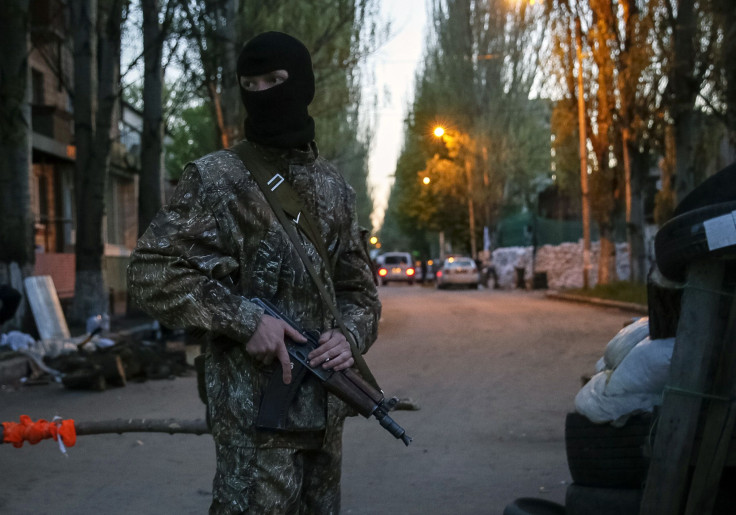G-7 Countries Agree To Impose Further Sanctions On Russia For Its Efforts To 'Destabilize' Ukraine

The group of seven, or G-7, countries -- the U.S., Canada, France, Germany, Italy, Japan, and the U.K. -- have agreed to impose additional sanctions against Russia and to “act urgently” to give those sanctions some force.
This follows the statements from U.S. President Barack Obama and Secretary of State John Kerry reiterating that they will have to act if Russia continues in its efforts to “destabilize” Ukraine. Ukraine’s administration had announced Friday of the second phase of its “antiterrorism operation” even as Russia continued to process the military drills that it said would conduct on the borders, soon after Kiev's operation was underway.
“Given the urgency of securing the opportunity for a successful and peaceful democratic vote next month in Ukraine's presidential elections, we have committed to act urgently to intensify targeted sanctions and measures to increase the costs of Russia's actions,” the G-7 leaders said in a statement Friday, adding: “We have now agreed that we will move swiftly to impose additional sanctions on Russia.”
Also on Friday, German Chancellor Angela Merkel told Russian President Vladimir Putin by phone that his administration had not done enough to urge the pro-Moscow separatists in Ukraine to disarm and de-escalate the violence in the country. The G-7 stated the same reason to impose fresh sanctions against Moscow, which may be implemented as early as Monday, news reports said.
“Russia has taken no concrete actions in support of the Geneva Accords. It has not publicly supported the accord, nor condemned the acts of pro-separatists seeking to destabilize Ukraine, nor called on armed militants to leave peacefully the government buildings they've occupied, and put down their arms. Instead, it has continued to escalate tensions by increasingly concerning rhetoric and ongoing threatening military maneuvers on Ukraine's border,” the statement said.
Ukraine and the U.S. have also been repeatedly saying that the pro-Russian separatists in the eastern part of the country are members of the Russian special forces, but Russia has denied this.
A new round of sanctions might cost Russia's economy gravely as the country's currency has just received a downgrade from Standard & Poor’s, or S&P, due to the tense political situation in the country that led to outflows of more than $50 billion in the first quarter, and a weakening of the Russian ruble, which has already lost more than 8 percent against the dollar.
"We could also lower our ratings on Russia if tighter sanctions were to result in additional weakening of Russia's net external position," S&P said Friday, adding that Russia’s current account may run into a deficit by 2015, if such sanctions continue.
© Copyright IBTimes 2024. All rights reserved.












